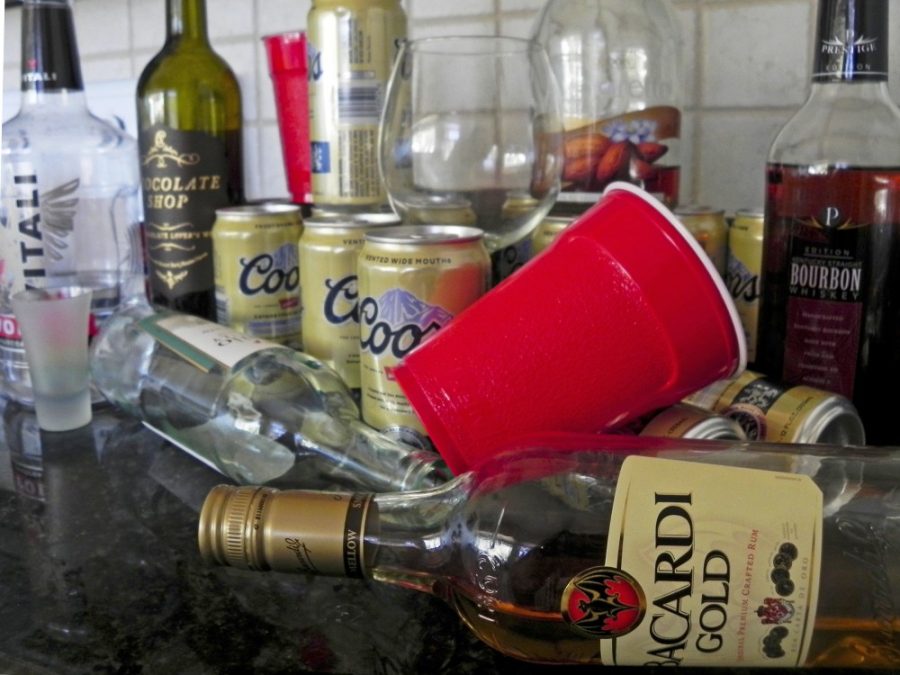The University of Arizona provides an option for students to find immediate medical attention caused by intoxication or alcohol poisoning, without being subject to disciplinary actions.
The UAGood Samaritan Protocol began in the fall of 2015. Together, the UA Police Department and the Dean of Students Office created this protocol with acknowledgment that legal and UA disciplinary actions may deter students from seeking help when a peer is suffering from alcohol poisoning.
“The health and safety of students is our primary concern, so we want students to seek medical attention for themselves or others,” Kendall Washington White, UA dean of students and assistant vice president for Student Affairs, said in an email.
UAGoodSam applies to all students and recognized student organizations at UA, specifically in regards to incidents on campus, on premises of a recognized student organization or at a function sponsored by a recognized student organization.
If a student is in need of medical attention, a call can be made to a resident assistant or directly to UAPD to seek help. UAGoodSam asks the caller to follow certain steps in order to avoid being subject to disciplinary actions concerning alcohol.
RELATED: Long time UA employee steps in as Interim Director of Housing
The protocol asks the caller to remain with the peer in need of assistance until help arrives, give the emergency medical personnel as much information as possible about the incident, and allow UA officials to record names of the intoxicated student as well as the caller for any necessary follow-up. If the student who called remains compliant and follows the correct steps, the caller will not be subject to disciplinary actions concerning alcohol.
Kimberly Fassl, assistant director of Student Behavioral Education for the Housing and Residential Life Student Assistance Team, oversees conduct with housing procedures and student assistance with housing.
“Students knew that someone wasn’t well and it was like we have to hide this person or leave them because they think they’ll get in trouble,” Fassl said. “If that happens once, that’s once too many.”
Jackson Kavrell, a resident assistant at Graham-Greenlee Residence Hall, first learned about UAGoodSam during RA training.

“As an RA, I think it’s a great protocol to have because our residents are more conscientious.” Kavrell said. “From a community standpoint, it helps the community out because people should do the right thing.”
UAGoodSam is advertised on flyers and mirror stickers in the halls and bathrooms of student housing. The Dean of Students Office and UAPD also present the protocol to students and parents at New Student Orientation every summer. The Dean of Students Office recently launched a UAGoodSam social media campaign where they want to produce short UAGoodSam videos in the hopes that more students become aware of the protocol.
Washington White wants to continue providing more information about UAGoodSam to make sure students fully understand it. She realized there are students who are doubtful of the protocol when she asked her son, a freshman at the time, if he and his friends had heard about UAGoodSam.
RELATED: Guide to UA dorm life
“The good news is that they were all aware of it, but the bad news is they were skeptical about not being held accountable for underage drinking,” White said.
Not every situation where underage drinking or over-drinking is involved falls under UAGoodSam. The protocol does not apply to situations leading to serious injury or death, a student operating a motor vehicle under the influence and trying to get medical attention for themselves or another student, use of illegal drugs, a student or organization that knowingly provided alcohol to minors, a student who has committed other criminal offenses related to alcohol or a student who is contacted by law enforcement other than UAPD.
The incidents that are called in will later be evaluated by the Dean of Students Office to determine if UAGoodSam applies. If the situation does fall under UAGoodSam, the students involved are required to meet with a staff member who will evaluate the situation and may later require the students to attend a substance abuse specialist, counseling or treatment. The students must comply with the requirements or they will be subject to additional requirements or disciplinary actions.
“While we do not condone minors drinking alcohol, we are realists and fully aware of the stereotypical portrayal of college life,” White said.
Follow the Daily Wildcat on Twitter









